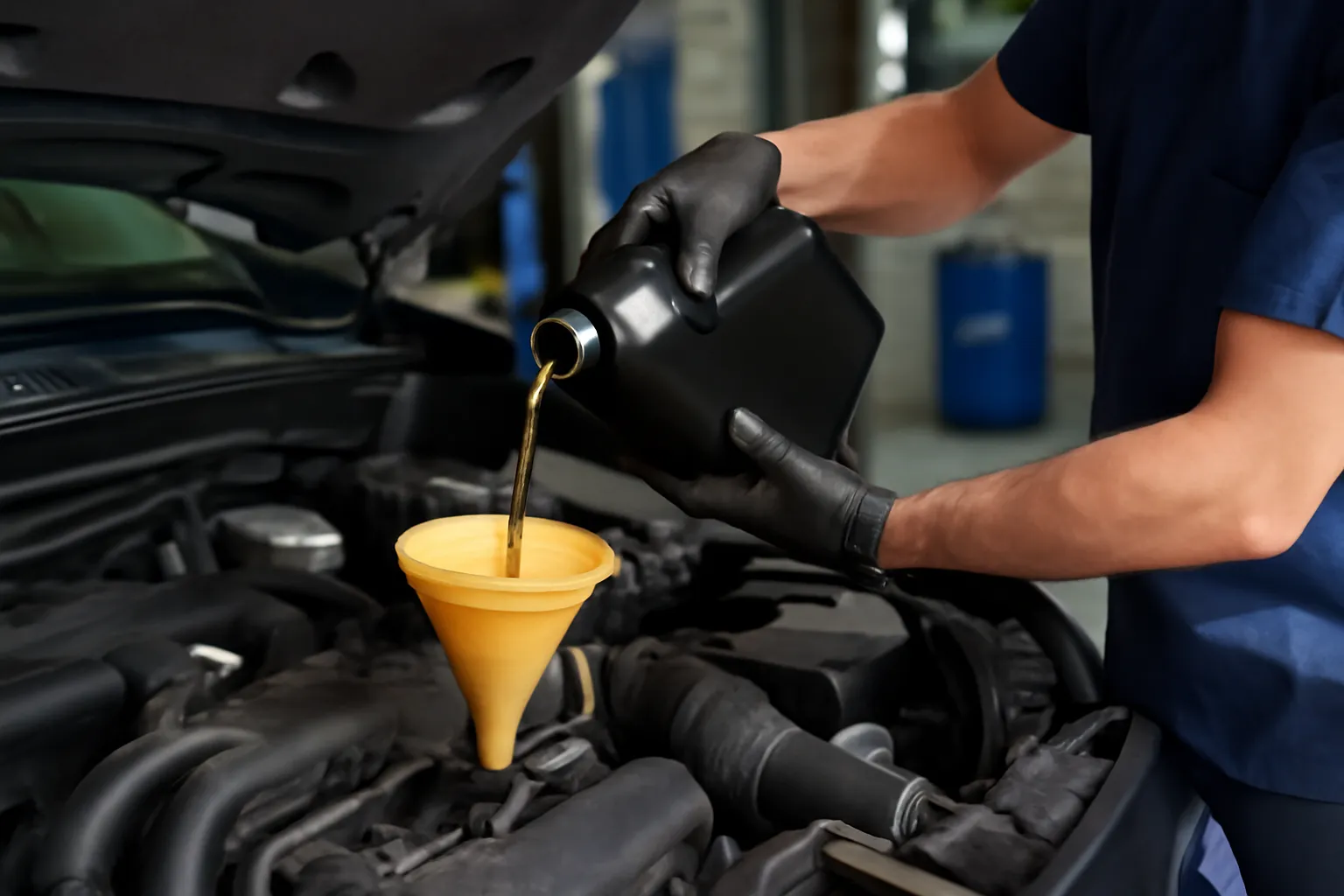Are you a first-time car owner? One of the essential maintenance tasks you’ll need to get familiar with is engine oil replacement. Changing your car’s engine oil for the first time can feel overwhelming, but it’s a crucial process to keep your engine running smoothly. Wondering when you should make that first oil change or how often to do it afterward? Let’s dive into the topic and simplify it for you.
What is Engine Oil and Why is It Important?
Engine oil plays a vital role in ensuring that your car’s engine runs efficiently. It lubricates the moving parts, reducing friction and wear, while also cleaning the engine by carrying away dirt and debris. Oil also helps in cooling the engine by dispersing heat.
But what exactly does the oil replacement process entail? How often should you get it done, and what are the signs that it’s time for a change? These are the key questions we’ll tackle, with an emphasis on first-time oil changes.
When to Replace Your First Engine Oil
For most car owners, the first oil change should be done sooner than you might think. Manufacturers generally recommend changing the oil after the first 1,000 to 1,500 miles (or 1,600 to 2,400 kilometers) for a brand-new car. This is because the engine’s initial break-in period can lead to the accumulation of small metal particles in the oil. Changing the oil at this stage helps ensure your engine stays clean and free of any harmful debris.
After the initial oil change, the regular interval for oil replacements usually falls between 3,000 and 7,500 miles (4,800 to 12,000 kilometers), depending on the type of oil used and your driving habits.
Signs You Need an Oil Change
While there’s a general mileage guideline, there are also several signs that your car needs an oil change. These include:
-
Check Engine Light Some cars will light up a “Check Engine” or “Oil Change” warning when the oil is due for replacement.
-
Engine Noise If you hear unusual noises coming from the engine, it may indicate insufficient lubrication.
-
Oil Level Drop If the oil level is low despite regular checks, it may need a replacement.
-
Exhaust Smoke Black smoke from the exhaust can indicate old oil burning in the engine.
If you’re unsure, it’s always a good idea to check your owner’s manual for specific recommendations on oil change intervals.
How to Perform Your First Car Oil Exchange
Many car owners opt to take their car to a mechanic for the first oil change, but some may prefer to tackle it themselves. Changing engine oil requires some basic tools and knowledge, but it’s something that can be done with practice.
Here’s a general overview of how the process works:
-
Gather the Necessary Tools You’ll need an oil filter wrench, drain pan, gloves, a funnel, and the right oil for your car.
-
Drain the Old Oil Start by lifting the car if necessary and draining the old oil. Make sure the engine is warm but not hot.
-
Replace the Oil Filter Use the oil filter wrench to remove the old filter, then install a new one.
-
Add New Oil Using a funnel, pour in the new oil, checking the level with the dipstick to ensure it’s at the right amount.
For first-timers, having a friend or a professional mechanic assist you can make the process much easier and safer.
👉 Learn more about engine oil change 👈
Why Changing Oil Regularly is Essential for Your Car
Regular oil changes are one of the most effective ways to extend the life of your engine. Without proper lubrication, metal parts in the engine can wear out faster, leading to engine failure. By staying on top of your oil changes, you ensure the engine remains in good condition, preventing costly repairs down the road.
For first-time car owners, learning the ins and outs of oil changes can seem daunting. However, staying informed and keeping track of your oil change schedule will lead to better performance, a smoother ride, and a more durable engine.
Conclusion
Changing your car’s engine oil for the first time is an essential step in maintaining your vehicle’s health. By knowing when and how to replace your oil, you can protect your engine and ensure a long lifespan for your car. Whether you choose to do it yourself or rely on a professional mechanic, regular oil changes are crucial to keeping your engine running smoothly. Don’t forget to check your car’s oil every few months, and follow the manufacturer’s recommendations for the best results.
Taking care of your car from the start will help you avoid unnecessary repairs in the future. So, make your engine’s health a priority, and get that first oil change done at the right time!






